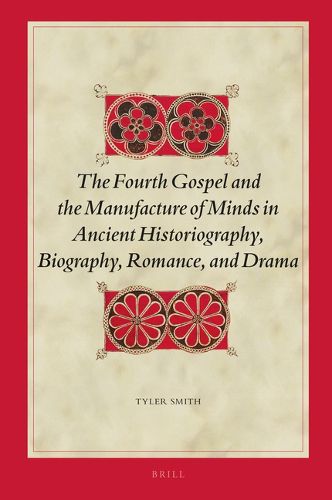Readings Newsletter
Become a Readings Member to make your shopping experience even easier.
Sign in or sign up for free!
You’re not far away from qualifying for FREE standard shipping within Australia
You’ve qualified for FREE standard shipping within Australia
The cart is loading…






The Fourth Gospel and the Manufacture of Minds in Ancient Historiography, Biography, Romance, and Drama is the first book-length study of genre and character cognition in the Gospel of John. Informed by traditions of ancient literary criticism and the emerging discipline of cognitive narratology, Tyler Smith argues that narrative genres have generalizable patterns for representing cognitive material and that this has profound implications for how readers make sense of cognitive content woven into the narratives they encounter. After investigating conventions for representing cognition in ancient historiography, biography, romance, and drama, Smith offers an original account of how these conventions illuminate the Johannine narrative’s enigmatic cognitive dimension, a rich tapestry of love and hate, belief and disbelief, recognition and misrecognition, understanding and misunderstanding, knowledge, ignorance, desire, and motivation.
$9.00 standard shipping within Australia
FREE standard shipping within Australia for orders over $100.00
Express & International shipping calculated at checkout
The Fourth Gospel and the Manufacture of Minds in Ancient Historiography, Biography, Romance, and Drama is the first book-length study of genre and character cognition in the Gospel of John. Informed by traditions of ancient literary criticism and the emerging discipline of cognitive narratology, Tyler Smith argues that narrative genres have generalizable patterns for representing cognitive material and that this has profound implications for how readers make sense of cognitive content woven into the narratives they encounter. After investigating conventions for representing cognition in ancient historiography, biography, romance, and drama, Smith offers an original account of how these conventions illuminate the Johannine narrative’s enigmatic cognitive dimension, a rich tapestry of love and hate, belief and disbelief, recognition and misrecognition, understanding and misunderstanding, knowledge, ignorance, desire, and motivation.